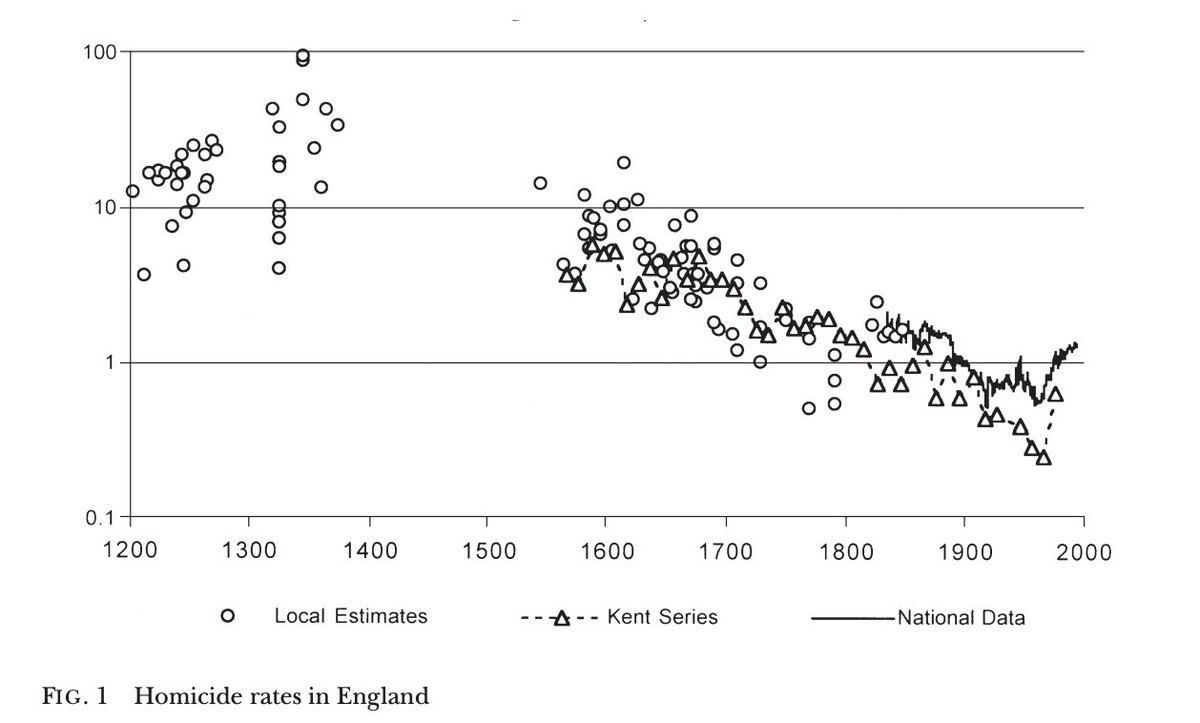
How to get URL link on X (Twitter) App




 Start by assuming *everyone* commutes to work by car. This is the land-hungriest option possible. Going by rail, because it is faster than walking, uses the least – 1 sqft. Then walking. then a bus. All the way to a car with driver only which needs up to 100 sqft.
Start by assuming *everyone* commutes to work by car. This is the land-hungriest option possible. Going by rail, because it is faster than walking, uses the least – 1 sqft. Then walking. then a bus. All the way to a car with driver only which needs up to 100 sqft. 


 This relentless drive to build is why France is more productive than the UK per hour, and approximately as rich as the UK, despite regulation, taxes, and unions
This relentless drive to build is why France is more productive than the UK per hour, and approximately as rich as the UK, despite regulation, taxes, and unions https://x.com/s8mb/status/1837065610712272986

 In 1938, local councils had the power to plan, and the right to refuse any development they liked, just as now. But after the Second World War, two things changed. Both dramatically reduced the incentive for councils to grant permissions. The results are famous.
In 1938, local councils had the power to plan, and the right to refuse any development they liked, just as now. But after the Second World War, two things changed. Both dramatically reduced the incentive for councils to grant permissions. The results are famous. 

 By 1932 our government scrapped mortgage regulations and First World War-era rent controls, leading to ourmost dramatic ever housing boom. Growth was so rapid (and America's Great Depression so deep) that for one year, we were the richest country in the world again.
By 1932 our government scrapped mortgage regulations and First World War-era rent controls, leading to ourmost dramatic ever housing boom. Growth was so rapid (and America's Great Depression so deep) that for one year, we were the richest country in the world again. 


 Everyone is familiar with speculative developer-led outward growth, of which there are thousands of acres around all major cities, from London’s Victorian and Edwardian railway suburbs to American ‘sprawl’.
Everyone is familiar with speculative developer-led outward growth, of which there are thousands of acres around all major cities, from London’s Victorian and Edwardian railway suburbs to American ‘sprawl’. 






 In 2007, Gavi, funded by the UK govt and the Bill and Melinda Gates Foundation, promised Big Pharma that if they invented a vaccine for pneuomococcal disease they would buy it. By 2011, GSK and Pfizer had met their specifications. So far this vaccine has saved 700,000 lives.
In 2007, Gavi, funded by the UK govt and the Bill and Melinda Gates Foundation, promised Big Pharma that if they invented a vaccine for pneuomococcal disease they would buy it. By 2011, GSK and Pfizer had met their specifications. So far this vaccine has saved 700,000 lives. 

 A standard pair of semi-detached houses in the 1960s (L), and their equivalent from the 1930s (R). Across Europe, homes were getting bigger and more modern. But in Britain, they were getting worse, despite rapidly rising incomes and huge demand subsidies.
A standard pair of semi-detached houses in the 1960s (L), and their equivalent from the 1930s (R). Across Europe, homes were getting bigger and more modern. But in Britain, they were getting worse, despite rapidly rising incomes and huge demand subsidies. 


 Canova, Thorvaldsen, and Rodin all worked this way. They produced moulds, which were turned by others into statues and sculptures. This type of art was always meant to be mass produced.
Canova, Thorvaldsen, and Rodin all worked this way. They produced moulds, which were turned by others into statues and sculptures. This type of art was always meant to be mass produced. 

 Every single one of these is the same building, and where possible I tried to get an identical perspective. That wasn't always perfectly achievable: there were loads of 'after' images, but not always lots of 'befores'.
Every single one of these is the same building, and where possible I tried to get an identical perspective. That wasn't always perfectly achievable: there were loads of 'after' images, but not always lots of 'befores'. 



 These estimates come from a range of sources. Local court data, combined with separate population estimates. One particularly good series following Kent for a long time. And then, from the 1800s, official data.
These estimates come from a range of sources. Local court data, combined with separate population estimates. One particularly good series following Kent for a long time. And then, from the 1800s, official data. 





https://twitter.com/bswud/status/1711678279818649786


https://twitter.com/mattdobra/status/1596174304248487939
https://twitter.com/sarahdoingthing/status/518382078094614529?s=21